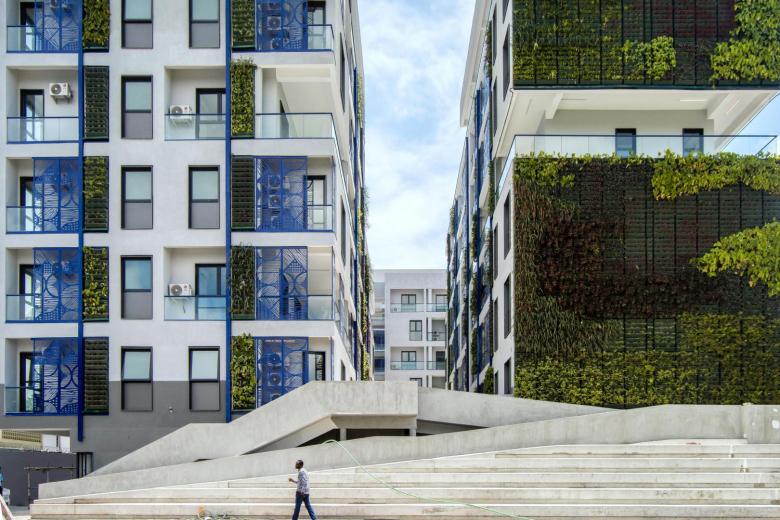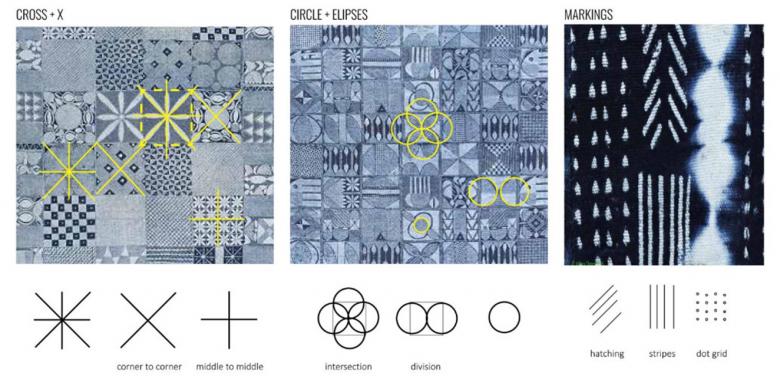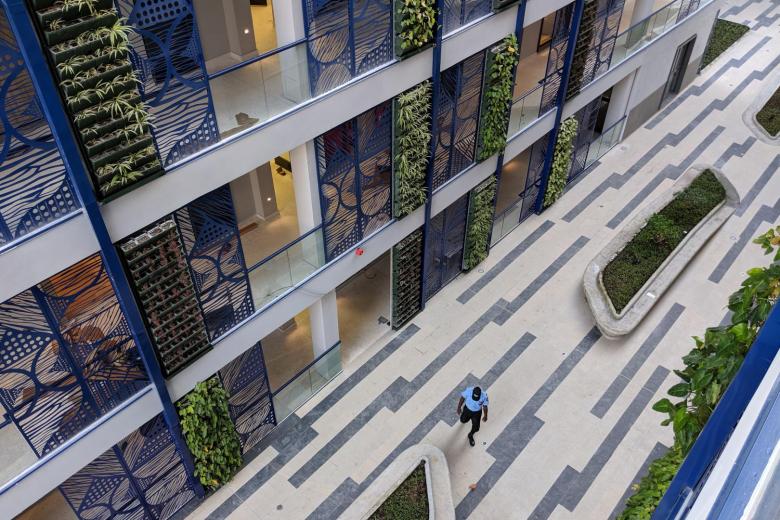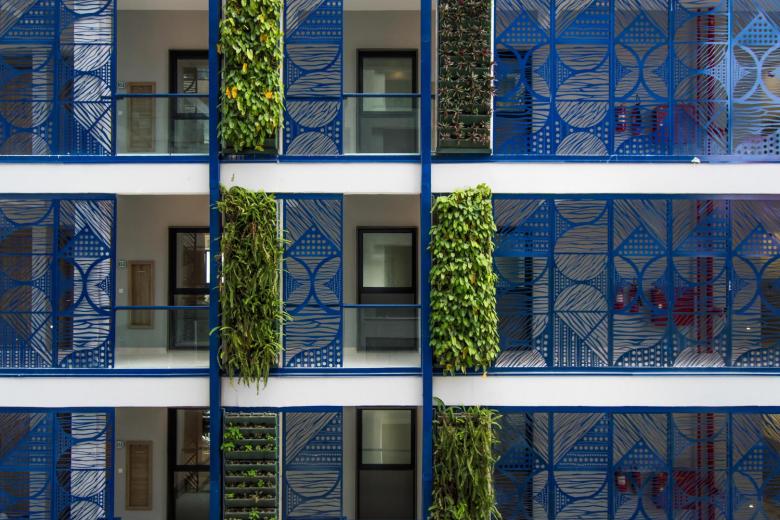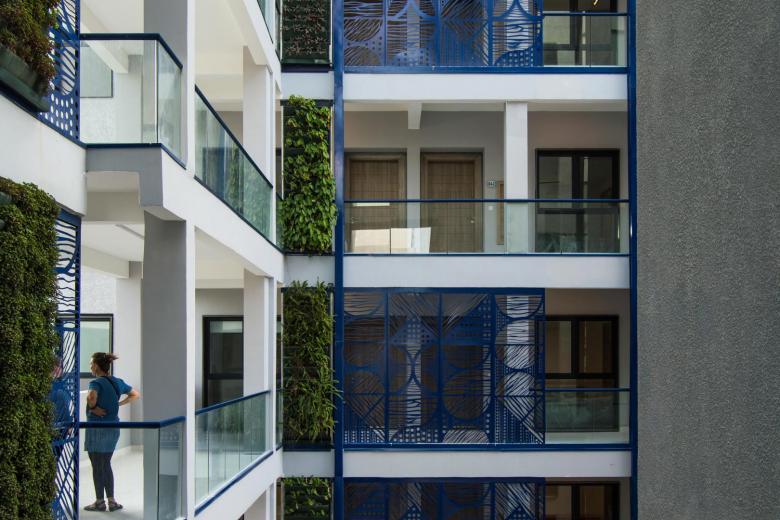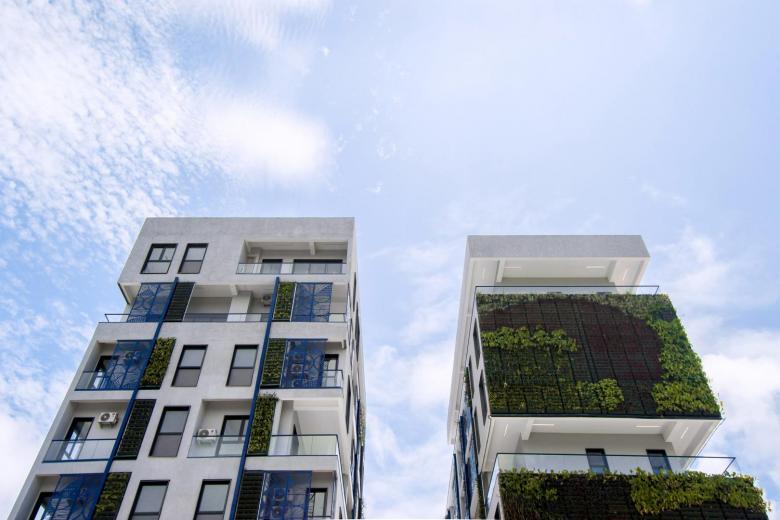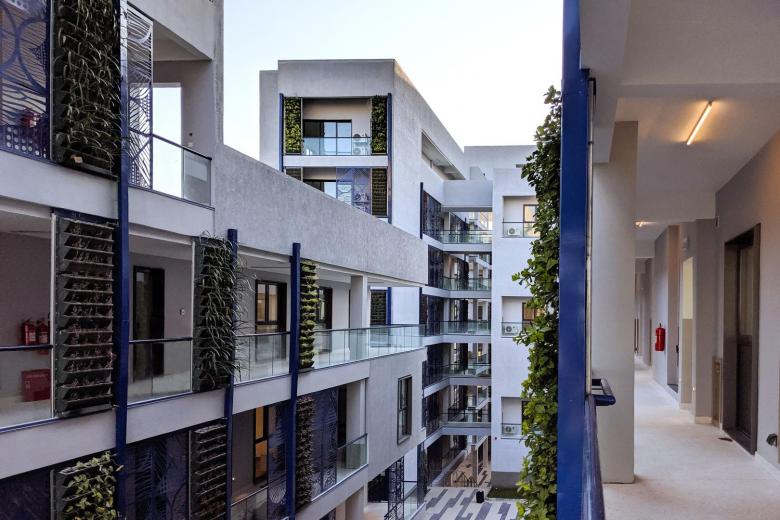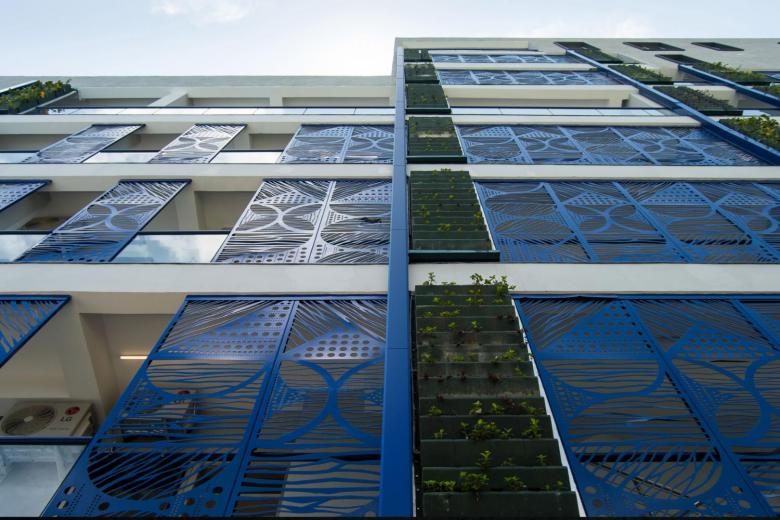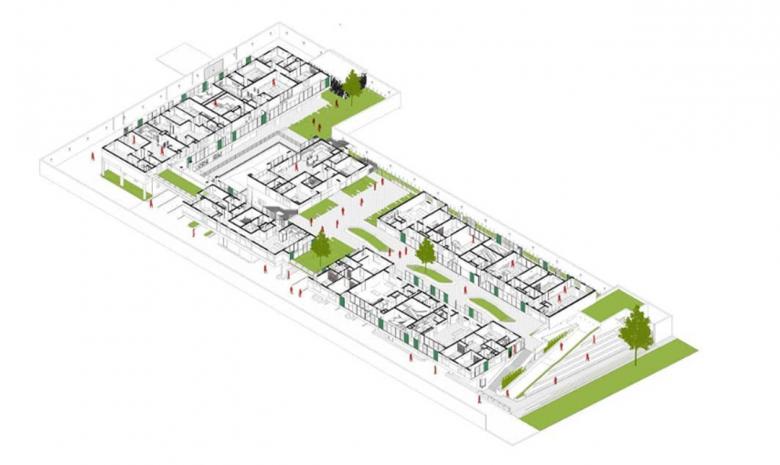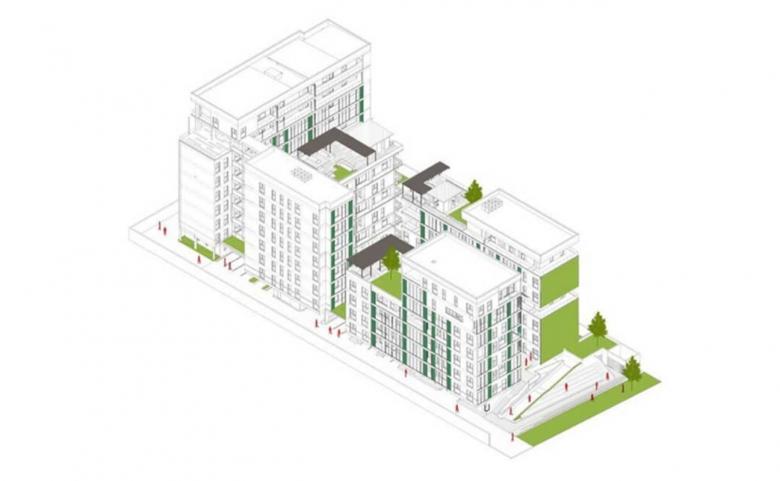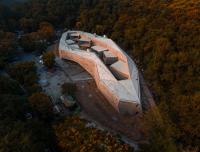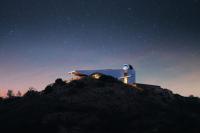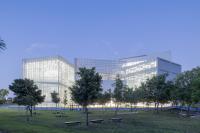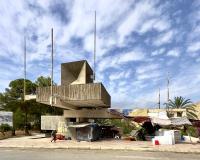Staff Housing: American International School Lagos (AISL)
Victoria Island, Nigeria
Due to the site constraints and the lack of public leisure outdoor facilities close by, available to the residents to use, it was important that the environment embraced a relationship between interior and exterior activities.Lagos is a city where people are constantly vying for space, and the decision for AISL to keep their staff housing within proximity of the main school, and the requirement that the design encourage an integrated sense of breathable internal and external spaces, made the design configurations a challenge. The school relocated to the current location adjacent to the site in 1981 and has had a strong presence in the area. It was important to the board that local references and heritage were reflected in some capacity.
The scheme is formed around 4 blocks, between 6 to 9 storeys high, linked through a series of internal streets, walkways and roof terraces. Each block housing a mix of 1,2 and 3 bedroom apartments each with their own personal outdoor private terrace. A central street, runs north-south, connecting the 3 main blocks, linking them visually back to the school and the sports playing fields, whilst the two interlinked blocks at the back are connected by the pool, gym, café and other social areas.
Form, materiality and the limitations of the local context and planning guidelines were central in developing the distributed massing study. The relationship between private and public space, the ‘in and out’, drove the overall intent of the design and became it’s central core. The scheme aimed to create an environment that would make residents fell connected, visually, emotionally and actively. A series of buildings that had tangible narrative form and texture, with a visible pulsating indigo heart. One that felt rooted, yet a little at odds with the wider cityscape (Victoria Island was historically a well-established residential area that has been reclaimed by corporate high risers over the last 10-20 years).
Two central elements in the façade aimed to reflect this ‘ this at odds’; a series of multifunctional motif screens, which were inspired by traditional adire motifs (a form of inscription of fabric used in an ancient indigo dyeing technique) and the use of a vertical planting green wall system, as though the tallest tree had erupted in the middle of this commercial cityscape.
- Architekten
- MOE+ ART ARCHITECTURE
- Jahr
- 2019
- Bauherrschaft
- American International School Lagos
- Team
- Papa Omotayo, Quadri Ademakinwa, Nnamdi Akubuiro, Oluwadamilola Akinniyi, Folakemi Oyewusi, Eve Nnaji, Kunle Osude
- Main Contractor
- Telisol Limited
- Structural Engineering
- Project Plus Potentials
- MEP Consultants
- BSDCL
- Landscape Design
- Arabella Landscape, BDW Nigeria, Jirad Landscaping
- Project Managers
- CMS Global Ltd
Dazugehörige Projekte
Magazin
-
-
Building of the Week
A Loop for the Arts: The Xiao Feng Art Museum in Hangzhou
Eduard Kögel, ZAO / Zhang Ke Architecture Office | 15.12.2025 -
